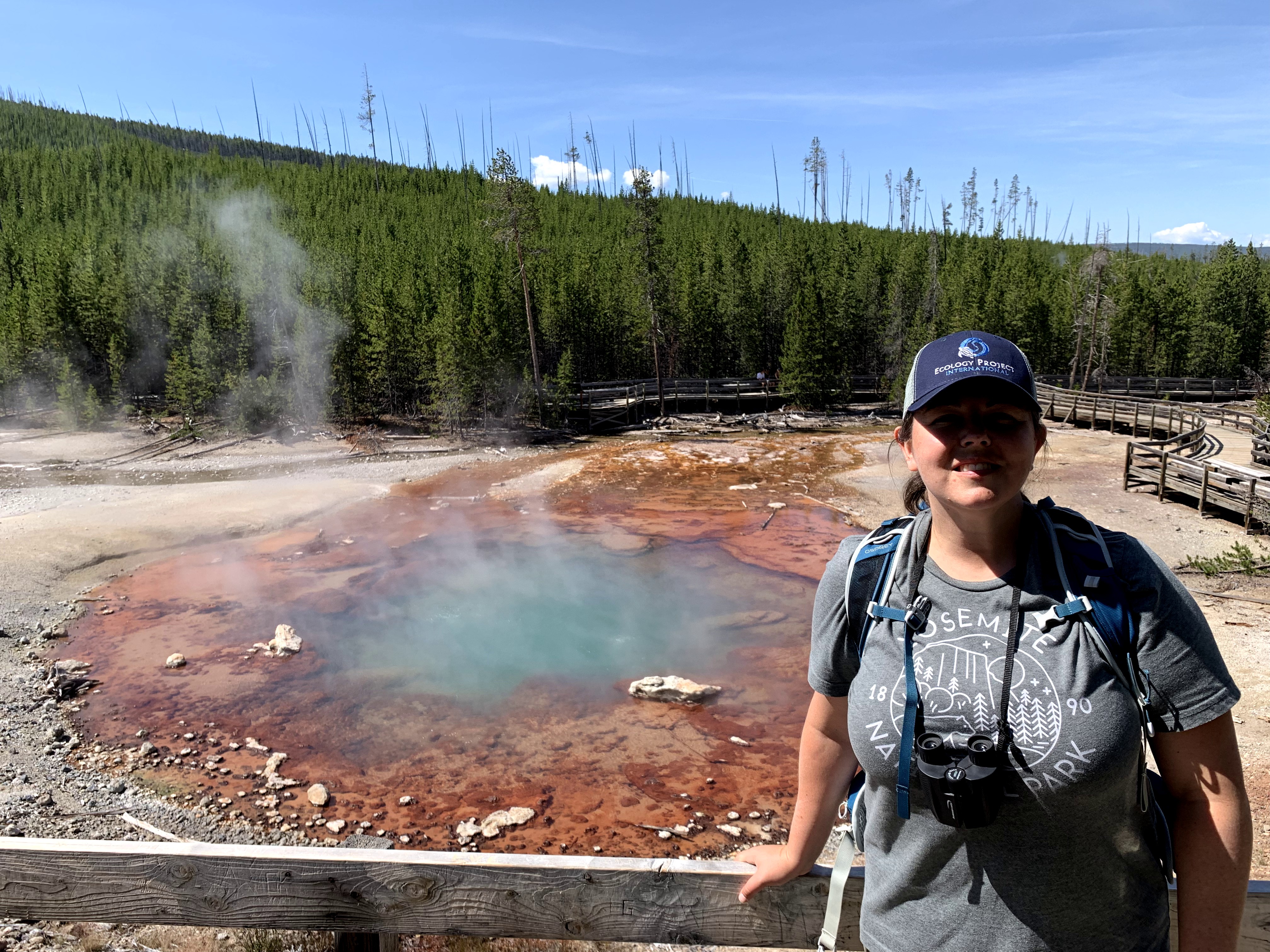
Hope Bigwarfe, Sand Creek Middle School and Colonie Academy Science teacher, participated in a teacher fellowship program with Ecology Project International in the Greater Yellowstone Ecosystem in August.
During her week-long fellowship she, and 11 other teachers from across the country, worked with EPI instructors and participated in various scientific research studies and projects in and near Yellowstone National Park. They participated in an amphibian and reptile distribution survey, invasive species removal, wolf and wildlife watching, and bison and ungulate field research.
Arrival day involved setting up tents and base camp; the following day was the amphibian and reptile distribution survey. The fellows collected multiple kinds of data related to the ecosystem at the pond being surveyed, as well as caught and released various species to document data on individual organisms. On Day 3, they went to OTO Dude Ranch, the first dude ranch in Montana, and met with a Park Ranger from the National Forestry Service.
She taught them about the history of the ranch, and the work that she does with land management and the various invasive species found in the area. They participated in removing second-year houndstongue from upper grazing meadows to help prevent it’s crowding out of native species that are an important food source for many ungulates (animals with hooves).
On wolf and wildlife watching day, the fellows were up bright and early and were lucky enough to spot a pair of wolves off in the distance and heard them howling to others near by. They spent some time meeting with a wolf expert and ecologist from the National Park Service and were able to learn about the reintroduction of wolves to the GYE, the various packs in and around the park, and the impact their return has had on the local ecosystem. Later, there was time as a group to learn about and discuss the various viewpoints of different groups regarding their introduction.
The fifth day was spent exploring the Mammoth Hot Springs and Norris Geyser Basin areas of the park, learning about and discussing many of the geothermal areas of the park. On days 6 and 7 the fellows learned about bison management, including the concerns of various local groups impacted in different ways by the growing population. They also participated in a bison migration study, using telemetry to locate collared animals and collect various data about the herds they were traveling in.
Day 8, the final day, was spent discussing the various studies they participated in and how they could use the skills learned with their own students. The end of the fellowship was celebrated by taking a white water rafting trip on the Yellowstone River.
